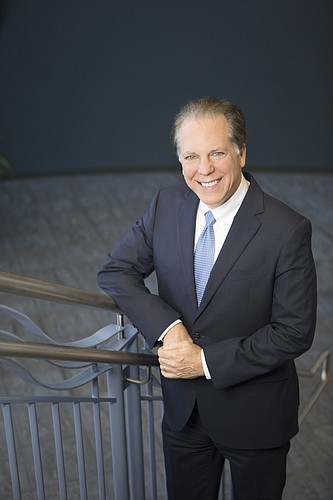- April 3, 2025
-
-
Loading

Loading

After 17 years, Mike Meidel is retiring April 30 as the Pinellas County director of economic development. Prior to that role, Meidel was the president and CEO of the Clearwater Regional Chamber of Commerce for five years. Prior to the chamber, Meidel held executive roles with Progress Energy and the Florida Department of Commerce.
While the county embarks on a national search for a new economic development chief, Meidel, 61, plans to spend his free time with his nine grandkids, including moving from St. Petersburg to Venice to be closer to family. Meidel recently spoke with the Business Observer on topics ranging from his team’s accomplishments to the future of economic development.
What deal are you most proud of, and how do you think it impacted Pinellas?
One of them is not really a deal, but it’s a deal with the residents and citizens of the community. Getting that language in Penny for Pinellas 4 was critical to our future. (In 2020, for the first time, Pinellas’ one-cent sales tax allocated money for economic development and affordable housing, about $165 million over the next 10 years.) The county administration and lawyers were a little nervous. We’ve had that language for 30 years. To change that language in the ballot took some negotiating — we didn’t get everything we wanted. But we got enough to have the tool.
Another big one we worked on for 15 years was keeping Jabil here because they were looking all over everywhere. Tampa was courting them, and they’ve got big facilities in California. They could’ve gone anywhere. Everybody would’ve paid big money to bring them out of the county — they’re a Fortune 500 headquarters with a lot of employees. We got them to commit to redeveloping their facility. And seeing that happen, their innovation center is done, and they’re about ready to open up their new building. That’s a big success.
'Florida is the worst in the country for every form of litigation. It’s just hard to be a business here.' Mike Meidel
What was one deal you wish had gone differently or got away?
There were a couple of long shots that we worked on. When you’re working on them so intensely, you think, "Oh, we might have a shot at this." Realistically, we were up against some big high hurdles. Like HQ2 for Amazon, we put a lot of work into it and came up with a really good proposal.
Overall, though, the biggest disappointments have been when we didn’t have the space. On Bristol Myers Squibb, we worked with Tampa on that and we helped them sell the Tampa Bay area. The company said: "OK, we love it. We’re coming here." But we just didn’t have the continuous space already available to move into. That’s what fueled us to go for this Penny for Pinellas space. Every time we work with those big medical projects, big financial services projects, we just always miss out because we didn’t have the space. That failure became the drive to make sure we correct that problem so we have a shot at it in the future.
What would you like to see Florida do differently in economic development?
[Bring back] the Qualified Target Industry Tax Refund program — we’ve got to stay in the game. (The Legislature let the program expire in June 2020.)
The other thing the Florida Chamber of Commerce has been trying to do for years is tort reform. Florida is the worst in the country for every form of litigation. It’s just hard to be a business here. That needs to be addressed. Fortunately, that’s not something businesses see until they get here. It makes it hard for businesses to grow at the level they really could grow.
How do you respond to critics who believe job-based incentives are handouts that pick winners and losers?
The way economic development is done around the world requires something to be brought to the table because you are competing with every other place in the world for the quality jobs that everybody in the world wants. Economic development is about creating a greater volume of money. Manufacturing is one of the best multipliers of that money, and that money is coming in and paying people who have disposable income, so they spread that money around the local economy. That’s when other places are buying jobs by giving away free land or hundreds of millions of dollars of cash incentives. We have to at least bring something to the table, so that we stay on the short list.
Unfortunately, it’s a competitive world, and we’ve got to at least be in the game. We’ve got a lot going for us in Florida. We don’t have to buy jobs. You can’t make a bad deal good. You have to make sure they come here rather than going somewhere else. With reasonable regulations and a good workforce pipeline, you do all of that to make sure they stay in the area.
How have you and your team dealt with the pandemic?
It’s so different from what we have been doing traditionally. The team and the county really stepped up. We had 60 people working from various departments to help us to do the CARES grant program. We ended up with $55 million going out to small businesses around the county. What’s different is we don’t typically work with retail or restaurants or hotels, so it was starting from scratch for us and building new relationships. It was a challenge, but it really had an impact.